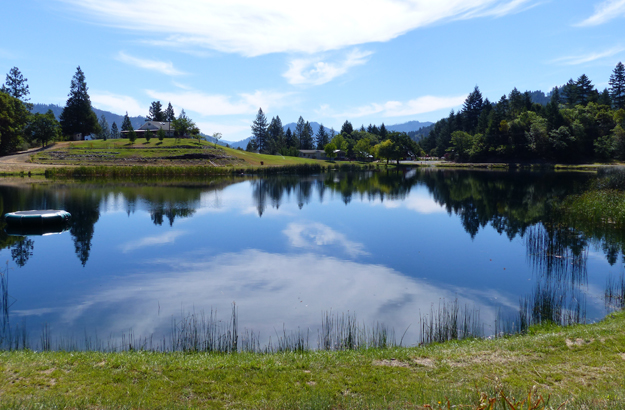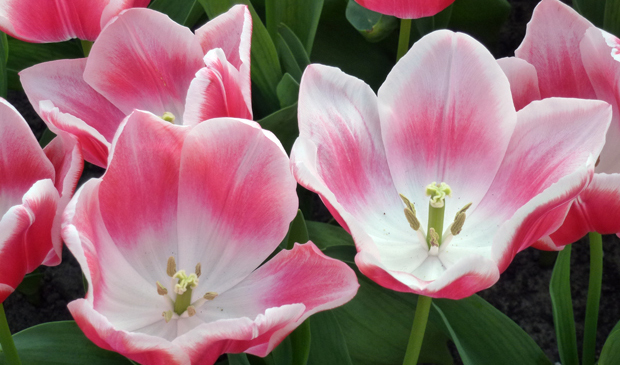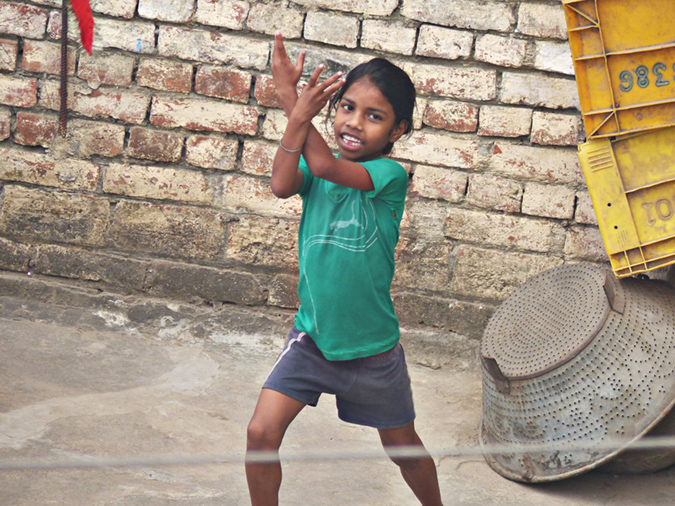I’m back from my last round of travels and am taking time out this week for some much needed rest and reflection. What’s captivated my attention since I got home a few days ago is the difference between meaning and happiness. One of the questions I’ve been asked several times on my book tour is, “Do you have to be happy in order to thrive?” It’s an interesting question I’ve been pondering.
I define thriving as our capacity to unleash our power to grow, flourish, and experience a sense of trust and well-being in ourselves, our work, and our lives so that we may offer our greatest talents to the world and then help others do the same. Thriving is being in full bloom regardless of the season of our lives. Sometimes those seasons bring sunshine, and sometimes they bring rain. But what helps us keep flourishing despite the challenging circumstances we encounter is the commitment thrivers make to seek meaning in all the seasons of our lives.
There are two articles that outline the distinctions between happiness and meaning I’ve found very useful in reflecting on this topic. In The Atlantic, “There’s More to Life Than Being Happy” and in Scientific American, “A Happy Life May Not Be a Meaningful Life.”
In her article in The Atlantic, Emily Esfahani Smith shared research conducted by Gallup which claimed that 60% of all Americans felt happy without a lot of stress or worry, yet only 40% of us had discovered a satisfying life purpose (Center for Disease Control statistics). In her article in Scientific American, Daisy Grewal, PhD, shared a study by Roy Baumeister and colleagues in the Journal of Positive Psychology which explains the key differences in living a happy versus a meaningful life.
What was interesting in Grewal’s article was that people’s happiness levels were positively correlated to seeing their lives as meaningful, but that what makes us happy doesn’t always deliver more meaning. In my case, buying that cool pair of shoes at the airport in Chicago made me happy for ten minutes, but it didn’t make my life more meaningful. However, when I wear those shoes and they spark the memory of that lovely night at my book reading in Milwaukee last week engaging with new friends and family, it reconnects me to a deeper sense of meaning and purpose in my life.
These articles make the point that although happiness and meaning share some things in common, there are also important distinctions:
| Pursuing Happiness | Living a Life of Meaning |
|---|---|
| We focus on what we can get | We focus on what we can give |
| We seek what the self wants to have | Transcends the self |
| Our primary driver is feeling good | Our primary driver is feeling fulfilled |
| Is focused in the moment | Integrates past, present, and future |
| Self-expression and personal identity don’t contribute to greater happiness | Self-expression and personal identity are important to a deeper sense of meaning |
Seeking happiness is personally motivated because we believe that getting something we want will make us feel better. When we seek meaning, we focus on what we can give, rather than get. We seek to make a contribution to the greater good in ways that help us feel fulfilled. Another key difference is that happiness is experienced in the moment and it dissipates over time (like the purchase of my new pair of shoes). Meaning is longer lasting. It endures and connects the past, present, and future. Finally, feeling a sense of personal identity and being able to express oneself were linked to a greater sense of meaning, but were not connected to being happy.
Dr. Martin Seligman, noted author who is known as the father of positive psychology said that in order to live a meaningful life, “You use your highest strengths and talents to belong to and serve something you believe is larger than the self.” In our culture, we seem to have it backwards. We place a high value on chasing happiness, but often at the expense of living a meaningful life. Victor Frankl, concentration camp survivor and author of Man’s Search for Meaning said, “It’s the very pursuit of happiness that thwarts happiness.”
I’m certainly not suggesting we not be happy. In fact, the more happiness, the better. I’m only offering that there is much more than seeking happiness to live a living of purpose that’s fulfilling. At the end of the day, it’s the sum total of the meaning in our lives that defines us because it’s so deeply connected to the contributions we make to those we love and to the larger world. It’s living a life of meaning that crafts our legacy. Maybe it’s true that money can buy happiness, but it certainly can’t buy meaning.
Questions to Ponder:
When you look at your life, how much time do spend pursuing happiness? Seeking meaning? What is the result? When you look at the distinctions between pursuing happiness and seeking meaning in the table above, what, if anything, would you like to change in your orientation to your life and career? What shifts might you make that would allow you to experience being happy and fulfilled?
If you’d like to engage in the conversation on happiness and meaning, please join the thread on Facebook.


 Happiness is the absence of the striving for happiness.―Zhuangzi
Happiness is the absence of the striving for happiness.―Zhuangzi




 One man I remember from the eye camp in Khandbari had been bilaterally blind for six months, but actively losing his sight for several years. The first day we met him, his shoulders were slumped, his head was bent down in dejection and he looked broken. But the next day, after spending the night on a thin wool blanket in a shed on the concrete floor with the other patients, his bandages from his cataract surgery were removed and he was able to see again. Tears rolled down my cheeks as I observed a smile as big as Texas unfurl across his weathered face. He lifted his hands in the universal sign of gratitude and offered a “Namaste” to the doctor who helped him regain the gift of sight.
One man I remember from the eye camp in Khandbari had been bilaterally blind for six months, but actively losing his sight for several years. The first day we met him, his shoulders were slumped, his head was bent down in dejection and he looked broken. But the next day, after spending the night on a thin wool blanket in a shed on the concrete floor with the other patients, his bandages from his cataract surgery were removed and he was able to see again. Tears rolled down my cheeks as I observed a smile as big as Texas unfurl across his weathered face. He lifted his hands in the universal sign of gratitude and offered a “Namaste” to the doctor who helped him regain the gift of sight. And yet, in the midst of all the squalor and suffering, on our last morning, while eating breakfast on the rooftop terrace of our hotel, we noticed a little girl about nine or ten dancing with glee on a patio of a house a few hundred feet away. She was in a pure state of bliss, and her joy was contagious. In the midst of the misery all around her, she’d made a choice to really live, to discover a sense of beauty in the tragic.
And yet, in the midst of all the squalor and suffering, on our last morning, while eating breakfast on the rooftop terrace of our hotel, we noticed a little girl about nine or ten dancing with glee on a patio of a house a few hundred feet away. She was in a pure state of bliss, and her joy was contagious. In the midst of the misery all around her, she’d made a choice to really live, to discover a sense of beauty in the tragic.